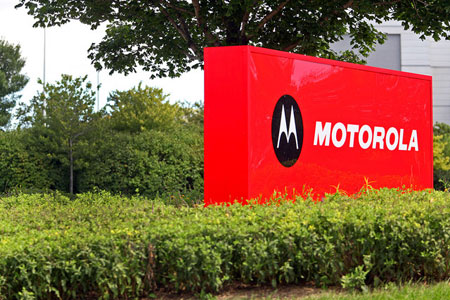Foreign IT companies leaving

Motorola Mobility said Monday that it will withdraw its business in Korea as part of efforts to restructure its global business. (Photo : The Korea Times)
Motorola, HTC pull out of Korea on lackluster performances
Foreign smartphone manufacturers are packing their bags as they are losing out to strong local brands.
On Monday, Motorola said it will withdraw from Korea as part of its global restructuring. The U.S. technology giant came to Korea in 1967 and first introduced its handset here in 1988.
The pullout comes after Taiwan’s HTC withdrew and Canada’s Research in Motion (RIM) has decided to withdraw or scale down operations here earlier this year.
Motorola Mobility Korea announced late Monday to its employees that it will close its operations that include research and development (R&D) as well as mobile device marketing by February. It will no longer release new devices in Korea.
The company said that it will continue after-sales services for current users. It said it will find job opportunities for some 500 employees based here. Around 10 percent of its research team will be able to transfer to its United States office.
“We are reorganizing our R&D department globally and will focus on markets that we can compete most efficiently. The change in the Korean market reflects that plan,” said Motorola Mobility.
It was announced in August that the company, now owned by Internet giant Google, will cut a third of its total global workforce with the majority of them from sluggishly performing overseas branches. Around 4,000 will lose their jobs.
HTC left Korea in July following slow sales despite having earlier vows to remain and release high-end devices.
Global giant RIM, whose BlackBerry series gained popularity during initial sales to reach a 10 percent market share at its peak, departed from the phone market in March. Finnish firm Nokia no longer sells its handsets here either, which were previously available through KT.
These companies have all announced job cuts amid falling margins and sales as they continue to face mounting challenges from the popularity of Apple and Samsung Electronics products.
Foreign technology firms have faced difficulty competing against local brands of Samsung, LG Electronics and Pantech. “Korean handset makers have overwhelming well-established brand power here. Other overseas companies just can’t compete against it,” said an official from a local manufacturer.
The biggest obstacle is flagship Android vendor Samsung Electronics that controls over 60 percent in market share. Its Korean competitors are also pressured by the Suwon-based firm as it overwhelms them with much larger marketing budgets and brand power. Local telecommunications firms KT and SK both closed their handset maker subsidiaries. LG and Pantech each control more than a 10 percent share here.
Chinese giant ZTE has recently ventured into the local market with a low-end smartphone, while it plans to release long-term evolution (LTE) models next year. Industry analysts and officials here are doubtful of its future due to the firm’s non-Korean counterparts’ track record. “It will probably gain some attention from those who are curious but it won’t make much headway as local firms already have a diverse line-up that will overlap with whatever product ZTE may bring to the table,” said HMC Securities analyst Greg Roh.
Apple, thanks to its loyal consumer base, as well as its recently released iPhone 5, has maintained its ground. “At its peak, it controlled a 10 percent market share in smartphones which fell to as low as 5 in the past few quarters due to the late launch (of the iPhone 5),” said another analyst requesting anonymity. “It will get even tougher for Apple next year due to Samsung’s aggressive marketing and device releases that are pressuring it to change strategy.”
Sony’s mobile division is still in Korea but it has not released any devices this year and is practically inoperative. It is speculated that it will also withdraw very soon. <The Korea Times/Cho Mu-hyun>



















































